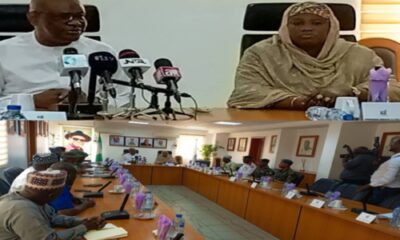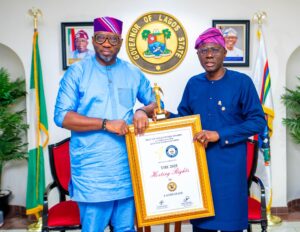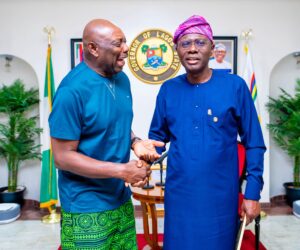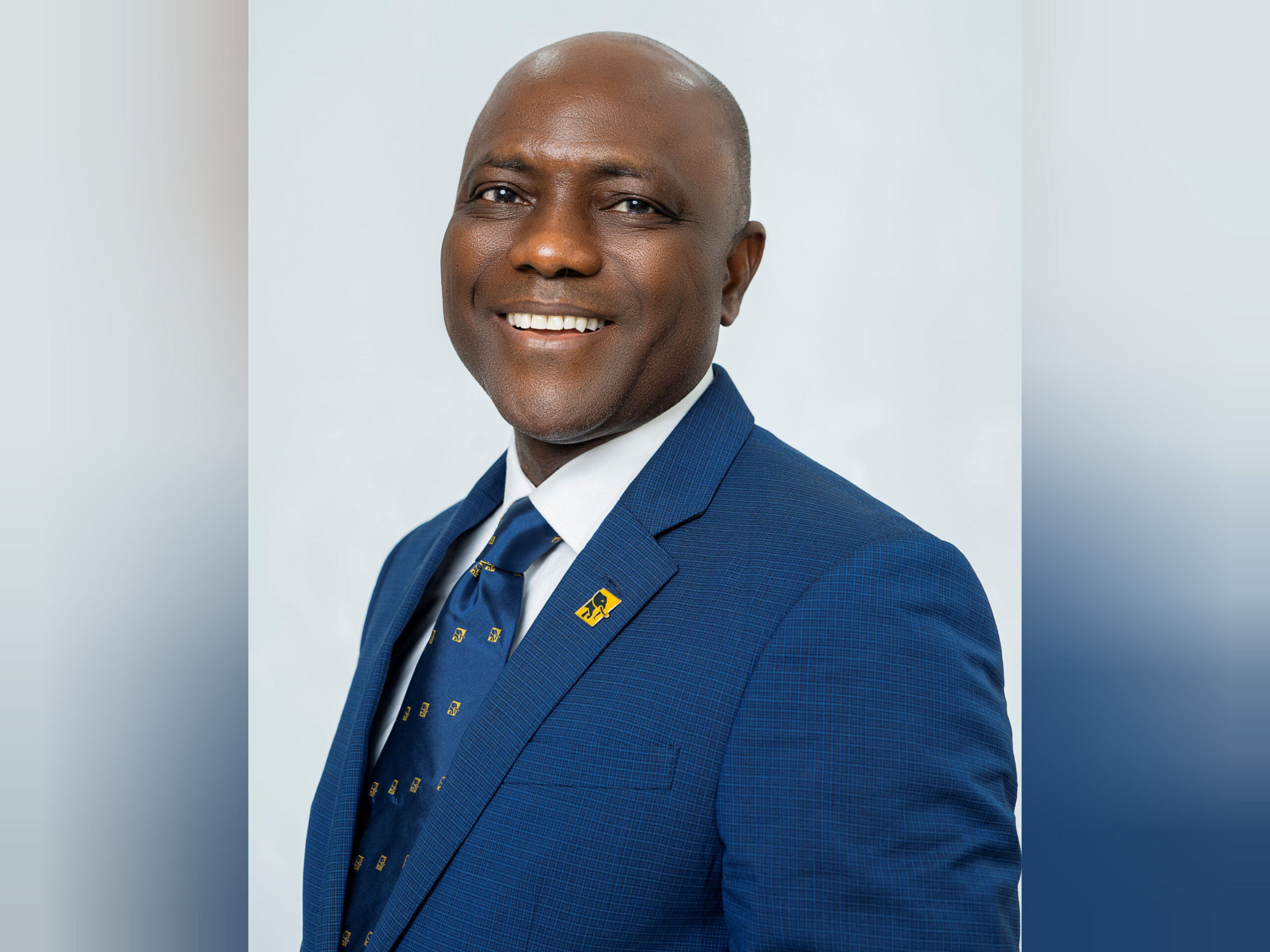The Rivers State Governor, Nyesom Wike, has declared that people of the state overwhelmingly voted for him during the 2019 governorship election because of his outstanding performance and project delivery.
In a response to an allegation made by the Minister of Transportation, Chibuike Rotimi Amaechi during his appearance on Channels Television Sunrise Daily on Tuesday, Governor Wike said that the former Rivers State Governor failed in his quest to truncate his second term because Rivers people were happy with his work.
He said he wouldn’t have responded to the falsehood being peddled by the Minister of Transportation, but he owes the public the duty to set the record straight.
He said: “It is unfortunate. I extended the Olive Branch and I meant every word of it. It was on that basis that the State Attorney General filed a nolle prosequi to withdraw the charge against Flag Amachree.
“If I did not do well in my first term, PDP wouldn’t have given me the party’s flag to fly. In 2015, the same man vowed that over his dead body would I emerge victorious.
“I have done well for my people. It is for the people of Rivers State to decide. It is not the in the place of Amaechi to decide.
“We have over 6million people and over 3million registered voters. Therefore, Amaechi cannot say I cannot go for a second term. He has only one vote.
“In the past, he said an Ikwerre man cannot succeed another Ikwerre man. Today, he is saying his grouse is that I cannot go for a second term. At every step, he has one story or the other”.
Governor Wike said contrary to the story that Amaechi peddled whilst he was on Channels Television, kidnapping raged during his tenure. He said it was so bad that the State Chairman of Rivers State Independent Electoral Commission under Amaechi was kidnapped.
The Governor noted that despite the National High-Rate of insecurity, Rivers State is relatively peaceful, with very high ratings.
“Our internally Generated Revenue has improved due to the peace and security of the state”.
Governor Wike said that the political misfortune that befell the APC during the last general elections in Rivers State was principally due to the impunity of Amaechi .
He said: “It is because of this impunity that his party was not on the ballot. Because of this impunity he has denied so many people their political future “.
He said that the plots by Amaechi to manipulate the Tribunal will fail like other previous plots. The Governor noted that Amaechi’s boast that he appointed the members of the tribunal and they would work for him remains one of his empty boasts.
Governor Wike said that Amaechi’s plot to use the police to illegally certify fake results as he did for Rivers East Senatorial District during the rerun elections tribunal would fail.
“The game he played in Rivers East of using the police to certify fake results will not work. During the rerun Police certified fake results. That game will not work again. We have gone beyond that. We are waiting for the police to certify fake results for Amaechi “.
He stated that there was no way that the defeated AAC Governorship Candidate, Engr Awara would have been coasting to victory when he neither campaigned or printed posters.
He said: “Awara ran for the PDP councillorship in 2018 and lost. For this election, he did not Campaign and never printed posters.
“Look at that kind of impunity. He brought a man that the people of Rivers State never knew three days to the election.
“The AAC had no House of Assembly Candidates, they had no House of Representatives candidates and no senate candidates for the elections. There is no way that such a party would have been coasting to victory “.
He added that the AAC Governorship Candidate could not have been coasting to victory and still approach the Federal High Court for the cancellation of the Governorship Election Results.
On the allegation that the INEC Chairman , Professor Mahmood Yakubu influenced the suspension of the Collation process because he worked under him at the Federal Ministry of Education, the Rivers State Governor said that the position of Amaechi was baseless. He said that at the Ministry of Education, he superintended basic Education, while the INEC Chairman served as TETFUND Executive Secretary under the Minister of Education. He said that the INEC Chairman was appointed by the APC Federal Government and since his appointment, there has been no links
Governor Wike said despite the evil machinations of the Minister of Transportation, he was unable to deliver 25 percent of votes for President Muhammadu Buhari in 2015 and 2019
“In 2015, as a sitting Governor, he failed to deliver 25percent of votes for President Buhari. He claimed that Jonathan helped us. In 2019, with all the security agencies, he still couldn’t deliver 25percent for President Buhari.
“He sang war songs, but couldn’t deliver 25 percent of votes for the President “, he said.
On the incident at Obio/Akpor LGA Secretariat, Governor Wike said that the GOC of the 6 Division of the Nigerian Army, Major General Jamil Sarhem sent soldiers to invade the Collation Centre and cart away results .
“I went there to stop the Army from carting away results from my Local Government Area “, he said.
Governor Wike said that the illegal activities of the Nigerian Army all through the Governorship Election were well documented by the media and the International community.
He said that the videos of the Army invading the Rivers State Governorship Election Collation Centre has since gone viral.
He said that even the Rivers State Commander of F-SARs has since written him a congratulatory letter on his well deserved victory.
He said that his administration continues to fund all security agencies in the state, including providing needed logistics. He said that the Israelis that Amaechi introduced were only used to siphon State resources .
He wondered why Amaechi finds Pleasure in de-marketing Rivers State, when the State made him Speaker, Governor and Minister of the Federal Republic.
Governor Wike said after four years as a Minister, Amaechi cannot boast of attracting a single project to Rivers State. He noted that as Minister of State for Education, he attracted several projects to the state.
He denied attempting to bribe the GOC, saying that he has never met him at any point. He said by Amaechi’s logic, it means that the Minister bribed the GOC 6 Division to subvert the Electoral Process.


 BIG STORY4 days ago
BIG STORY4 days ago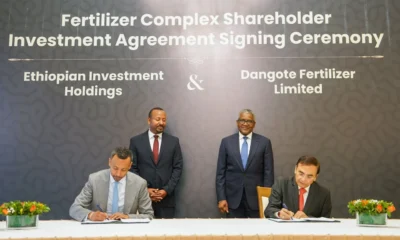
 BIG STORY4 days ago
BIG STORY4 days ago
 BIG STORY4 days ago
BIG STORY4 days ago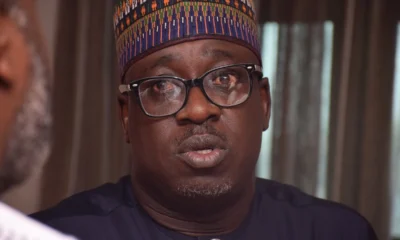
 BIG STORY3 days ago
BIG STORY3 days ago
 BIG STORY3 days ago
BIG STORY3 days ago
 BIG STORY7 hours ago
BIG STORY7 hours ago
 BIG STORY5 days ago
BIG STORY5 days ago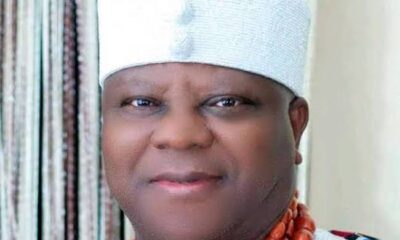
 BIG STORY5 days ago
BIG STORY5 days ago














